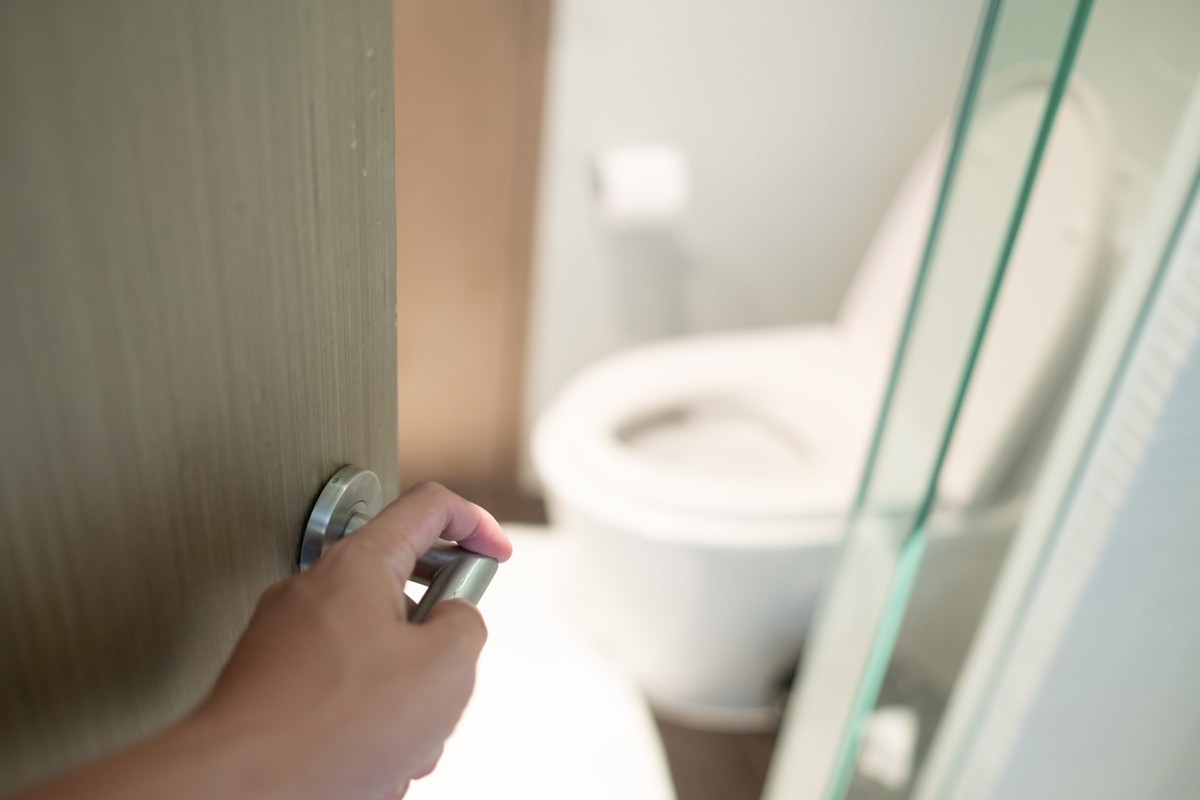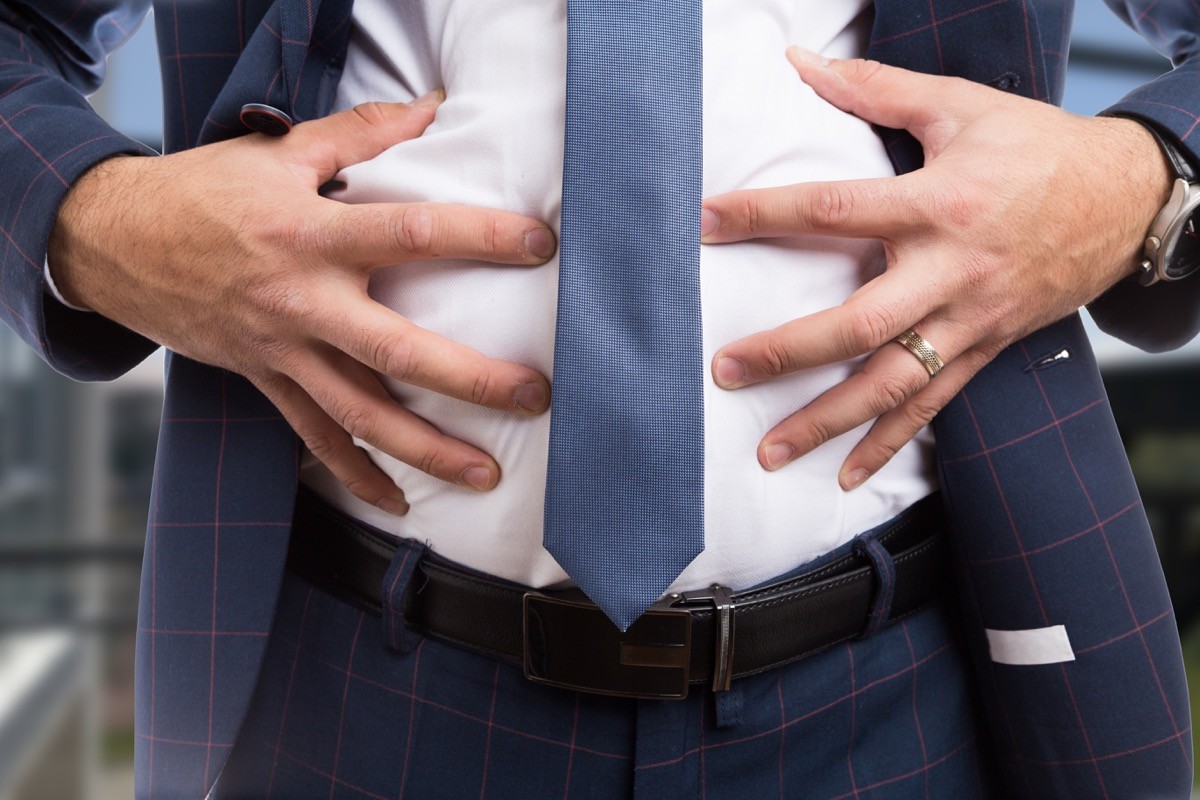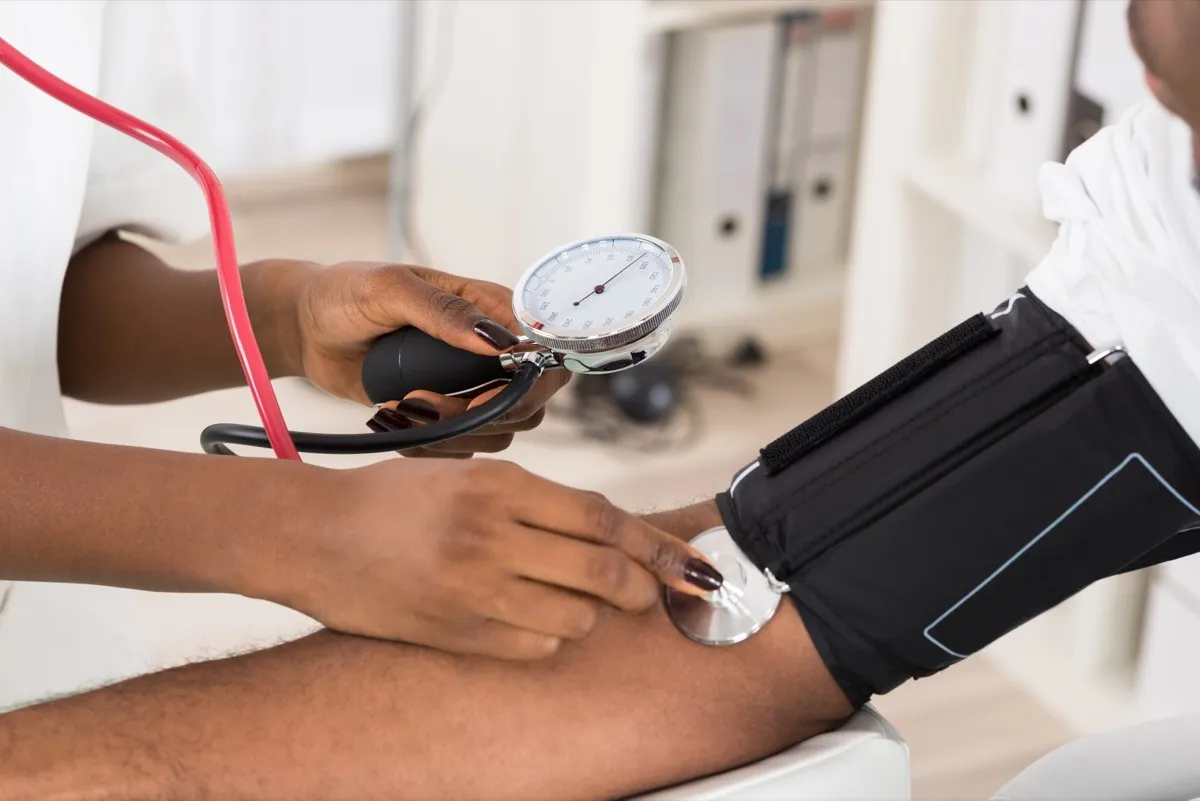7 Subtle Signs You’re Consuming Too Much Sodium, According to Doctors

The American Heart Association (AHA) recommends taking in no more than 2,300 milligrams (mg) of sodium per day. Ideally, they say, you should aim even lower, capping your consumption at 1,500 mg. However, that doesn’t stop the average American from getting much more than they need: 3,500 mg per day. This can have far-reaching consequences for your health.
“Sodium is an electrolyte that helps to regulate water balance in the body and improve water absorption,” explains Raj Dasgupta, MD, a medical reviewer for NCOA and an ABIM quadruple board-certified physician specializing in internal medicine, pulmonology, critical care, and sleep medicine.
However, too much sodium can raise blood pressure, increasing your risk of heart attack and stroke. Dasgupta notes that high-sodium diets can also increase the risk of kidney stones “since a high-sodium diet increases the amount of calcium in urine, which can trigger kidney stones in people who are susceptible.”
There are several ways to reduce your consumption of sodium, says Jennie Stanford, MD, FAAFP, DipABOM, an obesity medicine physician at Drugwatch. She recommends cutting back on processed or canned foods, cooking your own meals rather than dining out, eating plenty of fresh or frozen fruits and vegetables with no added salt, and seasoning your meals with non-salted herbs and spices.
However, it’s also important to recognize the signs that your sodium intake has risen to unhealthy levels. Read on to learn the seven subtle signs that you’re consuming too much sodium, according to doctors.
RELATED: 6 Signs You’re Eating Too Much Protein, According to Doctors.
1. Frequent urination

Frequent urination is one of the most common signs of consuming too much sodium. As Dasgupta explains, your kidneys are working extra hard to clear themselves of excess salt, resulting in more regular trips to the bathroom.
2. Excessive thirst

You may also experience excessive thirst when you eat too much sodium. You can interpret this as your body’s way of urging you to dilute your salt stores.
“Excess sodium causes the body to crave more water to balance the sodium levels,” explains Meaghan Greenwood, RD, MS, a registered nutritionist and dietitian working with Hourglass Waist.
3. Swelling or bloating

When you eat too much salt, your body attempts to calibrate the balance between your sodium levels and the amount of fluid in the body. As a result, you may notice swelling or bloating, Dasgupta notes.
RELATED: 6 Signs You’re Getting Too Much Calcium, According to Doctors.
4. Headaches

Preliminary research has linked high sodium consumption with more frequent and intense headaches. Dasgupta says that reducing sodium consumption may help reverse these effects and make headaches and migraines less likely.
5. High blood pressure

You may also notice your blood pressure levels climbing as a result of a high-salt diet.
“Sodium is important in regulating fluid balance through the kidneys. It is commonly said that ‘water follows salt,’ meaning that when sodium is consumed in excess, it leads to water retention,” Stanford explains.
“As more water is retained, this can lead to increased blood volume and arterial stress, which can increase blood pressure. Hypertension over time is taxing on the cardiovascular system, leading to higher risks of heart disease, heart attack, peripheral vascular disease, stroke, kidney disease, and other health concerns,” she cautions.
RELATED: 8 Signs You’re Consuming Too Much Dairy, According to Doctors.
6. Difficulty sleeping

Dasgupta says some people experience changes in their sleep habits when they eat too much sodium. This may take the form of disturbed sleep patterns, reduced REM sleep, or increased wakefulness.
“Salt intake and its effects on sleep have been studied since the 1980s,” Jaclyn Leong, DO, an internist with the Susan Samueli Integrative Health Institute, part of UCI Health, wrote for the California-based academic health system. “If a person is having symptoms of difficulty sleeping associated with decreased REM and increased wakefulness, this could be a clue indicating salt depletion in their diet.”
7. Difficulty breathing

Having difficulty breathing is a less common but potentially serious sign that you’re consuming too much sodium.
“In extreme cases, fluid retention caused by too much sodium can lead to shortness of breath,” says Greenwood.
This occurs when the heart has to work extra hard to pump increased fluid through the body. If you notice shortness of breath, you should call a doctor or emergency services for assistance.